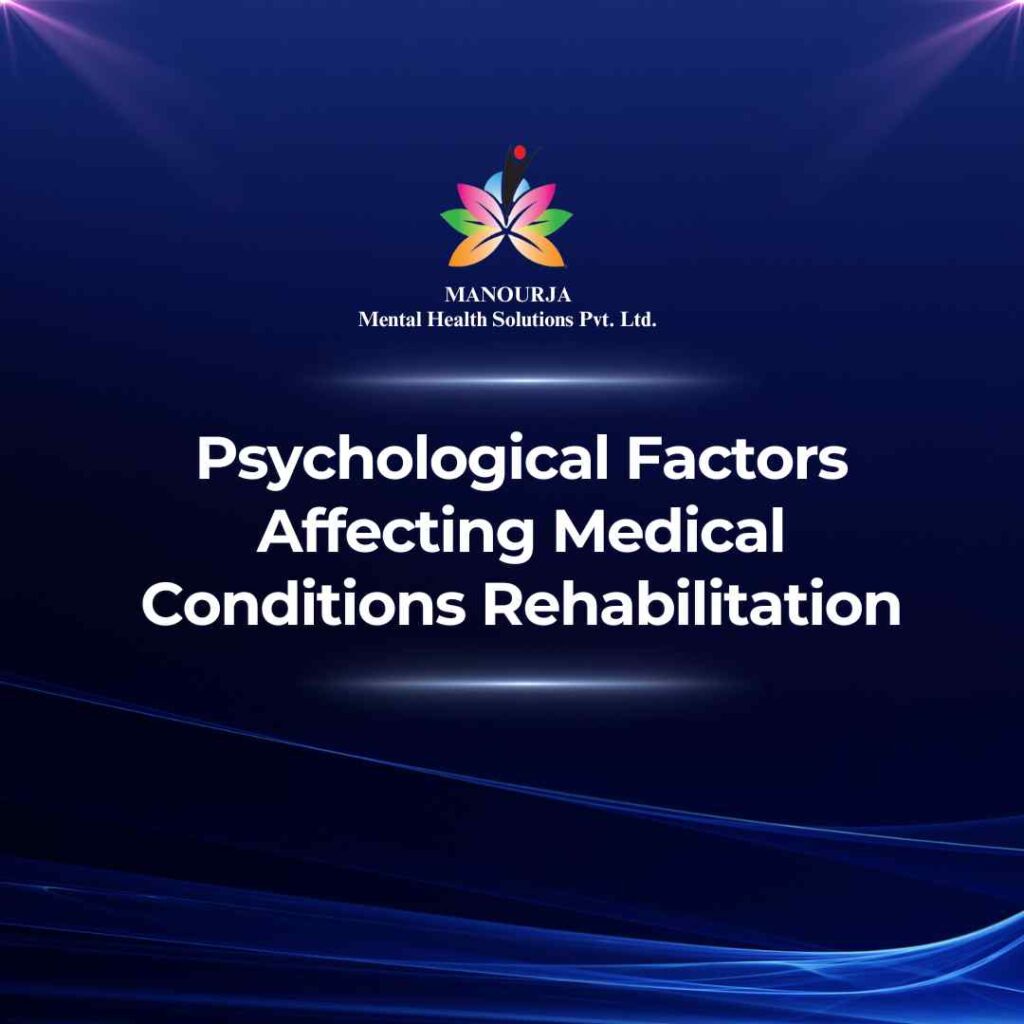Psychological Factors Affecting Medical Conditions Rehabilitation

Psychological Factors Affecting Medical Conditions refers to situations where an individual’s mental or emotional health influences physical health outcomes, exacerbating or contributing to medical conditions. Understanding the interaction between psychological well-being and physical health is crucial for managing such conditions effectively.
- Exacerbation of Physical Symptoms: Noticeable worsening of physical illness during periods of stress or emotional upheaval.
- Noncompliance with Medical Treatment: Psychological distress leading to difficulty adhering to medical advice or treatment regimens.
- Stress-Related Physical Symptoms: Development or intensification of physical symptoms such as stomachaches, headaches, or heart palpitations during stress.
- Mood Disorders: Depression or anxiety that co-occurs with and impacts a physical illness.
- Behavioral Changes: Changes in behavior or lifestyle that negatively impact a medical condition, such as poor diet, physical inactivity, or substance abuse.
Indicators for Outpatient Psychosocial Rehabilitation (OPD)
- Stable Condition: Individuals whose medical condition is stable and who require psychological support to manage their illness effectively.
- Good Support System: Availability of a strong family or community support system that can assist with treatment adherence.
- Manageable Symptoms: Psychological symptoms are present but not so severe as to require constant medical supervision.
Indicators for Inpatient Psychosocial Rehabilitation (IPD)
- Severe Psychological Impact: Intense psychological issues significantly impacting the management or outcome of a physical health condition.
- Safety Concerns: Risks associated with self-harm, suicide, or inability to care for oneself due to psychological factors.
- Complex Medical Needs: Conditions that require close monitoring or intensive management which cannot be adequately provided in an outpatient setting.
Factors Influencing the Decision
- Severity of Psychological and Medical Symptoms: The impact of psychological factors on the medical condition and overall functioning.
- Previous Treatment History: Effectiveness of prior outpatient treatment efforts.
- Home Environment: Whether the home environment supports or hinders the management of the medical condition.
How Psychosocial Rehabilitation Aids in Treatment
Psychosocial rehabilitation provides comprehensive support designed to address both psychological and physical health, promoting better management of medical conditions through improved mental health.
Techniques and Approaches Used at MANOURJA
- Cognitive Behavioral Therapy (CBT): Helps modify negative thought patterns that may affect illness management, focusing on developing more constructive ways to deal with stress and illness.
- Motivational Interviewing: Encourages adherence to medical advice and engagement in healthy behaviors.
- Stress Management Training: Techniques such as relaxation training, meditation, and biofeedback to manage stress effectively.
- Psychoeducation: Educating individuals about the interaction between their psychological state and their medical condition, encouraging proactive management of both.
- Group Therapy: Provides support and facilitates sharing strategies among patients with similar challenges.
Steps in the Rehabilitation Process at MANOURJA
- Initial Assessment: Comprehensive evaluation of both psychological and physical health.
- Developing a Personalized Care Plan: Tailoring interventions to meet individual needs, focusing on both mental and physical health.
- Implementing the Care Plan: Engaging the patient in various therapeutic activities and monitoring progress.
- Continuous Evaluation: Regular assessments to monitor effectiveness and make necessary adjustments.
- Transition Planning: Preparing for the transition to less intensive care or back to community living, ensuring support mechanisms are in place.
“Every step toward balance in your mind and body is a step toward a healthier you.”
